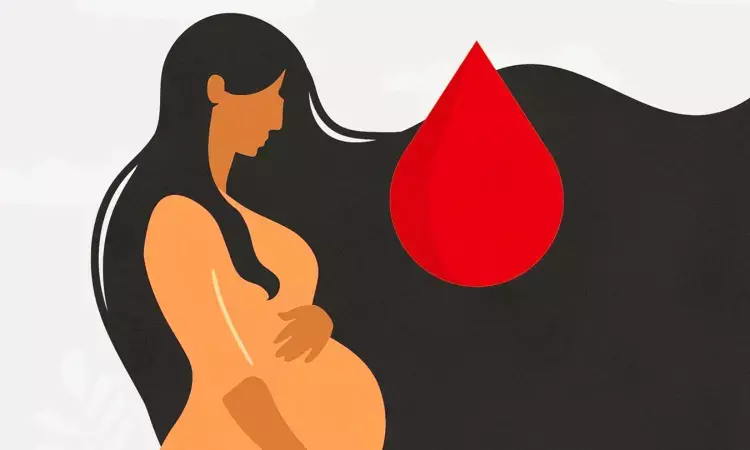- Home
- Medical news & Guidelines
- Anesthesiology
- Cardiology and CTVS
- Critical Care
- Dentistry
- Dermatology
- Diabetes and Endocrinology
- ENT
- Gastroenterology
- Medicine
- Nephrology
- Neurology
- Obstretics-Gynaecology
- Oncology
- Ophthalmology
- Orthopaedics
- Pediatrics-Neonatology
- Psychiatry
- Pulmonology
- Radiology
- Surgery
- Urology
- Laboratory Medicine
- Diet
- Nursing
- Paramedical
- Physiotherapy
- Health news
- Fact Check
- Bone Health Fact Check
- Brain Health Fact Check
- Cancer Related Fact Check
- Child Care Fact Check
- Dental and oral health fact check
- Diabetes and metabolic health fact check
- Diet and Nutrition Fact Check
- Eye and ENT Care Fact Check
- Fitness fact check
- Gut health fact check
- Heart health fact check
- Kidney health fact check
- Medical education fact check
- Men's health fact check
- Respiratory fact check
- Skin and hair care fact check
- Vaccine and Immunization fact check
- Women's health fact check
- AYUSH
- State News
- Andaman and Nicobar Islands
- Andhra Pradesh
- Arunachal Pradesh
- Assam
- Bihar
- Chandigarh
- Chattisgarh
- Dadra and Nagar Haveli
- Daman and Diu
- Delhi
- Goa
- Gujarat
- Haryana
- Himachal Pradesh
- Jammu & Kashmir
- Jharkhand
- Karnataka
- Kerala
- Ladakh
- Lakshadweep
- Madhya Pradesh
- Maharashtra
- Manipur
- Meghalaya
- Mizoram
- Nagaland
- Odisha
- Puducherry
- Punjab
- Rajasthan
- Sikkim
- Tamil Nadu
- Telangana
- Tripura
- Uttar Pradesh
- Uttrakhand
- West Bengal
- Medical Education
- Industry
Temporary Uterine Artery Clamping Beneficial in Reducing Postpartum Hemorrhage During Cesarean Sections: Study

Spain: A recent randomized controlled trial, published in BMC Pregnancy and Childbirth, has revealed that temporary clamping of the uterine arteries during cesarean sections may significantly reduce the risk of postpartum hemorrhage, a major concern for maternal health.
The researchers revealed that temporary clamping of the uterine arteries during cesarean sections seems to be an effective strategy for preventing postpartum hemorrhage, leading to shorter hospital stays and a lower prevalence of anemia at discharge.
Cesarean sections are the most frequently performed abdominal surgeries globally, with rates rising in both developed and developing nations. Postpartum hemorrhage (PPH) during these procedures can result in maternal morbidity, extended hospital stays, and heightened mortality rates. While numerous non-surgical strategies are suggested for preventing PPH, surgical interventions like uterine artery ligation and embolization have proven effective in managing this serious complication.
Against the above background, Lorena Sabonet- Morente, Surgical Specialties, Biochemistry and Immunology Department, Málaga University, Málaga, Spain, and colleagues seek to assess the efficacy of a surgical technique involving temporary bilateral clamping of the uterine arteries as a method to minimize blood loss during cesarean sections.
For this purpose, a longitudinal prospective, randomized, controlled study was conducted with an initial cohort of 180 patients at the University Hospital Regional de Málaga from November 2023 to January 2024. Patients were divided into two groups based on the application of the clamping technique during their cesarean sections. The study focused on evaluating hemoglobin levels before and after surgery, hospitalization durations, and the incidence of anemia at discharge as the primary outcomes.
The following were the key findings of the study:
- The patients who underwent the clamping technique demonstrated significant reductions in hemoglobin differences (0.80 g/dL) compared to the control group (1.42 g/dL).
- The technique also resulted in shorter hospital stays (3.02 days versus 3.90 days) and a lower prevalence of anemia at discharge (76.2% versus 60%).
The study revealed that the use of temporary clamping of the uterine arteries during cesarean sections following fetal delivery may effectively prevent postpartum hemorrhage while also reducing hospital stays and anemia rates at discharge. This approach could yield significant medical and economic advantages.
The researchers noted that compared to other surgical techniques, such as the tourniquet method, this clamping technique is simpler to perform, maintains effectiveness regardless of surgical duration, and does not require readjustment to sustain reduced blood flow.
"The absence of complications and the ease of implementing this technique suggest the need for further studies to confirm its benefits. This research could help determine whether this method is suitable for widespread use or should be limited to specific contexts or indications," they concluded.
Reference:
Gómez-Castellano, M., Sabonet- Morente, L., López-Zambrano, M.A. et al. Temporary clamping of the uterine arteries versus coventional technique for the prevention of postpartum hemorrage during cesarean section: a randomized controlled trial study. BMC Pregnancy Childbirth 24, 608 (2024). https://doi.org/10.1186/s12884-024-06799-z
Dr Kamal Kant Kohli-MBBS, DTCD- a chest specialist with more than 30 years of practice and a flair for writing clinical articles, Dr Kamal Kant Kohli joined Medical Dialogues as a Chief Editor of Medical News. Besides writing articles, as an editor, he proofreads and verifies all the medical content published on Medical Dialogues including those coming from journals, studies,medical conferences,guidelines etc. Email: drkohli@medicaldialogues.in. Contact no. 011-43720751


